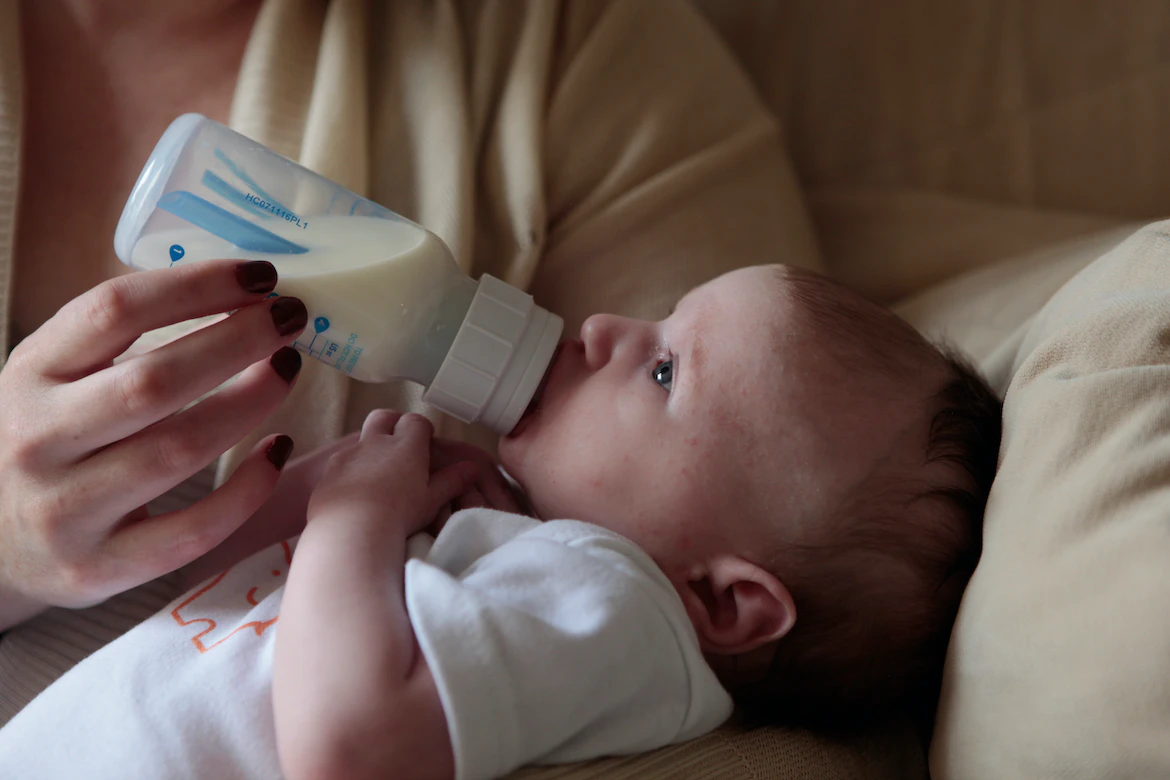The first few years of a child’s life are the most essential when it comes to their healthy upbringing. Studies show that a nutrition deficit during a child’s formative years can impair healthy development. More specifically, if a baby is malnourished for the first two years of its life, it could face an increased risk of stunting.
It is, therefore, essential that a child is given the right amounts of nutrition when they are first developing.
Breastfeeding vs. Baby Formula: What’s the Right Choice?
Breastfeeding is considered to be the best source of nourishment for babies. It is, therefore, recommended that breastfeeding be the primary source of nutrition for an infant. The first six to twelve months are especially important. For a number of reasons, however, some mothers might decide against breastfeeding their babies.
In this case, choosing the right baby formula is of prime importance.
Since the 1800s, we have been using baby formula to feed infants. Today, there are three main types of baby formula you can get from your local store: cow’s milk protein, soy protein, and non-dairy-based formulas.
The list of baby formula ‘features’ marketing by manufacturers is virtually endless. To add to this, baby formula comes in many forms – powders, liquid concentrates, and ready-to-use.
It is, however, crucial to note that the side effects of baby formula can be unpredictable, which is evidenced by the NEC baby formula lawsuit.
In somewhat of a chilling saga, lawsuits are currently being filed against some manufacturers of baby formula. More specifically, formula made from cow’s milk was found to cause Necrotizing enterocolitis (NEC). The disease causes the intestines to swell up, resulting in cell death and the formation of holes. This allows harmful bacteria to leak into the intestines.
A lawsuit was first filed by a Louisiana woman after her son was fed cow milk-based products Similac and/or Enfamil. The baby was born premature and subsequently developed NEC. It was also claimed in the suit that makers of these products, Abbott and Mead Johnson, intentionally and knowingly used false marketing tactics to target parents of premature babies.
The disease is said to be almost exclusive to premature babies: babies born before the 37th week of pregnancy.
Deciding What Water You Should Mix in Your Baby Formula
Let’s say you have done your research (and let’s face it, this is in itself no easy task). There is still an important detail you have to consider while preparing your baby formula. The water!
As humans, our immune systems have developed to offer protection from the environment. If we consume water from a dubious source, we might find ourselves with a stomach ache or bug. For babies, on the other hand, consuming contaminated water could be lethal.
Tap Water and Water Testing
The preparation for feeding your baby formula begins from before the time of pregnancy. Get your water supply tested beforehand to make sure it is free of any contaminants.
Your local water supplier is required to provide you with a report of your water supply annually. Go through this to check for common contaminants, so you know the water is safe for consumption. This ensures your health and, more importantly, protects the baby from infections.
It is also possible that you get your water from a private water supply or well. Unlike public water supplies, the Environmental Protection Agency (EPA) is not responsible for regulating privately owned water supplies.
In this case, you will have to get the water tested on your own. Additionally, TorHoerman Law points out that a number of chemicals are yet to be brought under the purview of the EPA. Forever chemicals, for instance, are still being discovered and studied in our water supplies, and EPA regulations are yet to catch up.
Bottled Water
Many consider bottled water to be safer than tap water. Bottled water is processed in an attempt to remove harmful contaminants. However, it is still not sterile. While this might not be a serious concern for adults, it puts babies at risk.
Fluoride, for instance, is beneficial against tooth decay. Too much fluoride in your water, however, could cause enamel fluorosis, which causes a child’s teeth to become discolored. If you find that this is the case, bottled water might be a good option. Even if you are using bottled water, taking the extra step of boiling it will help with removing contaminants.
Distilled Water
Water that has been boiled until it turns to vapor and then cooled back down is called distilled water. Due to the water boiling, contaminants are left behind, and only ‘purified’ water is cooled back down. It’s easy to see why this makes distilled water a good choice for the preparation of baby formula.
A flipside, however, is that distilled water is also devoid of calcium, magnesium, and other such minerals. Fluoride is missing from this water as well. Some of these minerals, like fluoride, are proven to be beneficial in limited amounts. Some, therefore, choose to alternate between distilled and tap or bottled water to compensate.
Conclusion
Taking care of a baby is an extremely taxing responsibility, and you can leave no stone unturned. Making sure you have picked the right baby formula is not enough. It is also important to make sure that the formula is not contaminated during preparation. Using water that has been tested and potentially purified can unearth a plethora of health benefits. It also keeps a long list of illnesses and infections at bay.











Leave a Reply